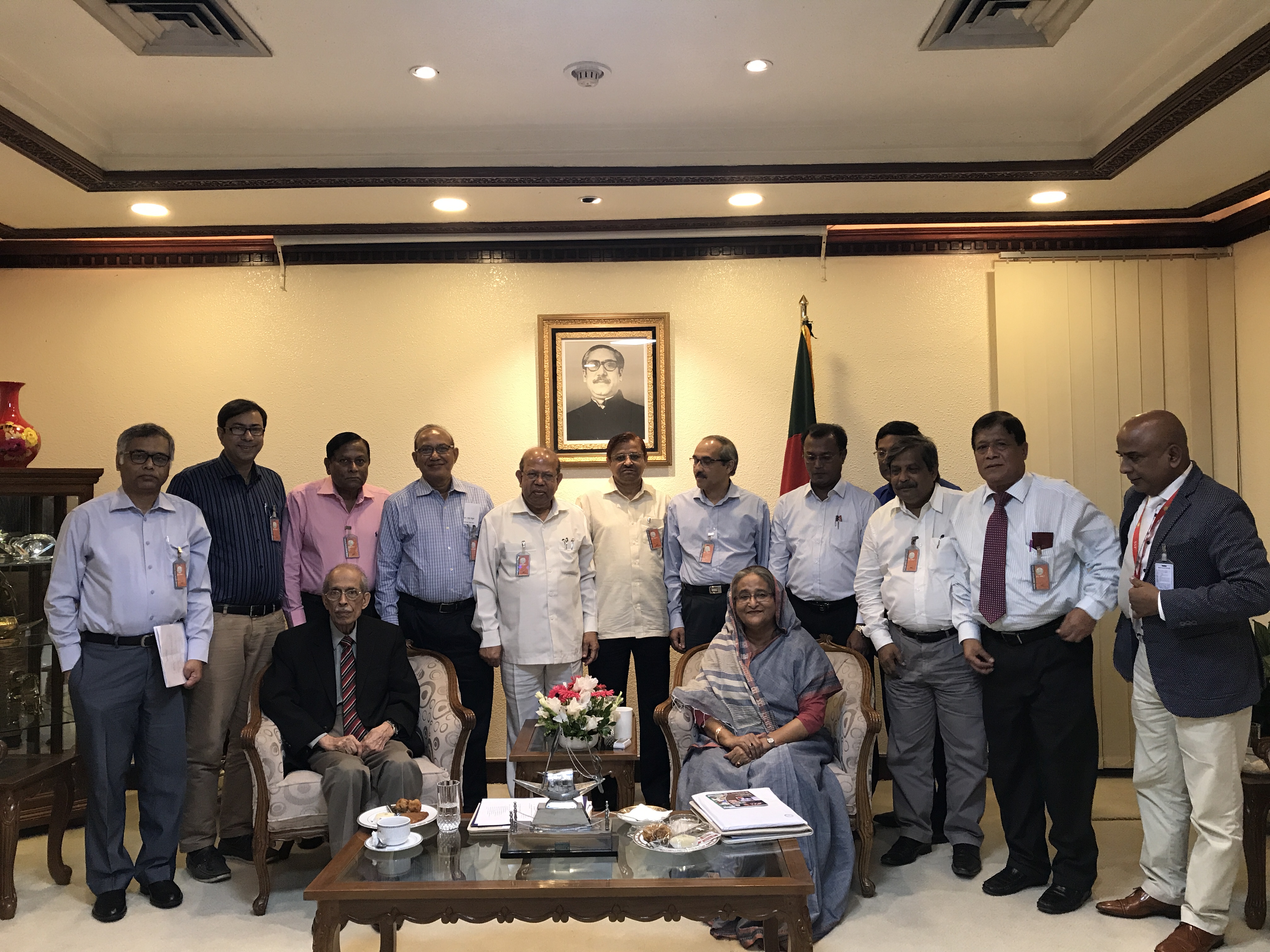
A delegation of “Bangladesh Network for NCD Control & Prevention” met with Sheikh Hasina, Honorable Prime Minister, Government of the People’s Republic of Bangladesh on 20 July 2017 at Prime Minister’s Office. The delegation led by National Professor Brig. (Rtd.) Abdul Malik, Founder & President, National Heart Foundation of Bangladesh.
Eminent physicians and Civil Society Member from different organizations working for NCD control and prevention in their respective fields were present in this meeting. They are- Professor Dr. A K Azad Khan, President, Bangladesh Diabetic Samity and Endocrine Society of Bangladesh; Professor Dr. Quazi Deen Mohammad, President, National Institute of Neurosciences & Hospital; Professor Dr. Mollah Obayedullah Baki, President, Bangladesh Cancer Society; Professor Dr. AKM Mohibullah, President, Bangladesh Cardiac Society; Professor Dr. Khondker Abdul Awal Rizvi, Secretary General, National Heart Foundation of Bangladesh; Professor Dr. Abdul Gani Mollah, President, Bangladesh Orthopedic Society; Major General Dr. Ziauddin Ahmed (Rtd.) Vice President, Kidney Foundation of Bangladesh; Professor Dr. Mohammad Ali, Secretary General, National Liver Foundation of Bangladesh; Professor Dr. Bayezid Khurshid Reaz, Direcotr, National Institute of Preventive & Social Medicine (NIPSOM); Professor Dr. Sohel Reza Choudhury, Head of Epidemiology & Research Department, National Heart Foundation Hospital & Research Institute and Mr. Iqbal Masud, Head of Health, Dhaka Ahsania Mission.
Representatives of the delegation briefly discussed on the burden of non-communicable diseases in Bangladesh. A set of written specific recommendation has been submitted before Honorable Prime Minister for her kind consideration. Amongst the recommendations-
Firstly: Formation of a ‘National Council for NCD Control’ headed by Honorable Prime Minister to work in a coordinated way for NCD Control & Prevention. An outline of this proposed council has also been submitted.
Secondly: To reduce tobacco use, one of the major risk factors for non-communicable diseases, as well as to actualization of the guideline set by Honorable Prime Minister “Make Bangladesh tobacco free by 2040”, undertake a roadmap and specific action plan is needed. Faster approval of the `Surcharge Management Policy’, which is now under government’s consideration; utilization of the money earned from that surcharge to commence and manage the activities of a ‘National Tobacco Control Program’ were also proposed.
In addition, strengthen the prevention mechanism of non-communicable diseases to attain the goal 3 of Sustainable Development Goal (SDGs), awareness raising about NCDs and its risk factors and their prevention through extensive mass media campaign were also enlisted in the written recommendations.
Honorable Prime Minister considered the recommendations with due importance and expressed her kind expectancy to take necessary initiatives on those.
Non communicable diseases (NCDs) have become the major disease burden globally. Bangladesh is in the midst of an epidemiologic transition where the burden of disease is shifting from a disease profile dominated by infectious diseases, under-nutrition and conditions of childbirth to one increasingly characterized by non-communicable chronic diseases (NCDs). According to World Health Organization, NCDs are estimated to account for 59% of total death in Bangladesh. For effective coordination and implementation of policies and action plan for NCDs, to work collectively in a coordinated way with the representation from various relevant ministries, academia and civil society organizations is now a well-timed demand.